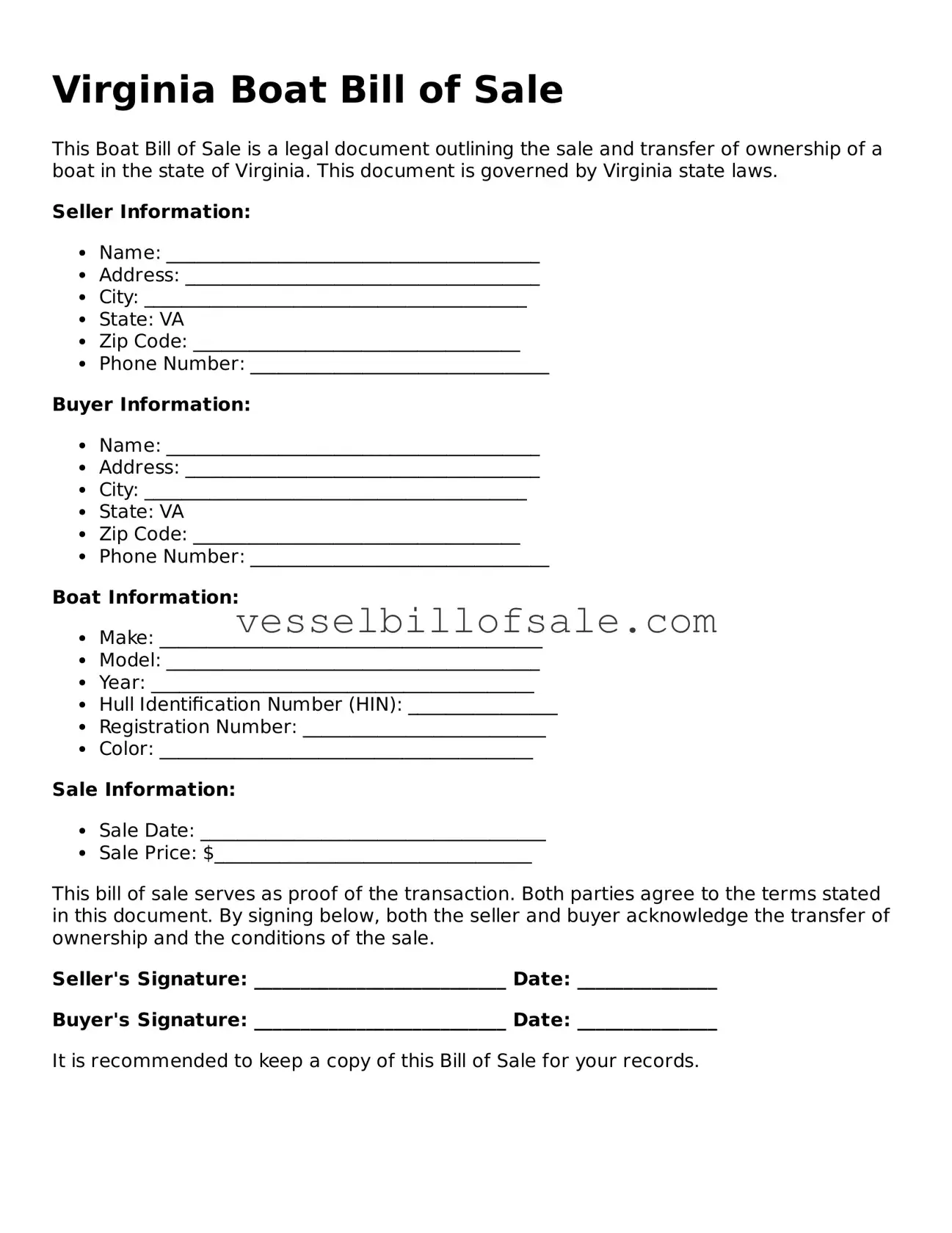Key takeaways
When it comes to buying or selling a boat in Virginia, a Boat Bill of Sale is an essential document. Here are some key takeaways to keep in mind when filling out and using this form:
- Essential Document: The Boat Bill of Sale serves as proof of the transaction between the buyer and seller. It outlines the details of the sale and protects both parties.
- Accurate Information: Ensure all information is accurate. This includes the names and addresses of both the buyer and seller, as well as the boat's make, model, year, and hull identification number.
- Sales Price: Clearly state the sales price of the boat. This is crucial for tax purposes and future registration.
- Condition of the Boat: Describe the condition of the boat at the time of sale. This can help prevent disputes later on.
- Signatures Required: Both the buyer and seller must sign the document. This confirms that both parties agree to the terms outlined in the bill of sale.
- Notarization: Although notarization is not required, having the document notarized can add an extra layer of authenticity and protection.
- Keep Copies: After the sale, both parties should retain copies of the signed Bill of Sale for their records. This documentation may be needed for future reference.
- Registration: The Bill of Sale is often required when registering the boat with the Virginia Department of Game and Inland Fisheries. Ensure you have it ready for the registration process.
- Consult Local Regulations: Always check for any local regulations or requirements that may apply to your specific situation. Laws can vary by locality.
By keeping these takeaways in mind, you can navigate the process of buying or selling a boat in Virginia more smoothly and confidently.
